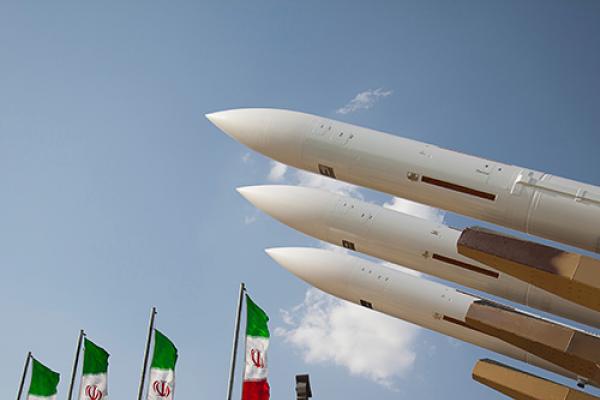High-profile Democrats, along with others of their party, seem to agree more with Israel’s Prime Minister Benjamin Netanyahu than with U.S. President Barak Obama regarding the Iran nuclear agreement. The deal was forged this summer in Switzerland between Iran and the P5+1 nations of France, Russia, China, Germany, the United Kingdom, and the United States.
High-profile Democrat agrees with Israel
In an editorial published in the Washington-based political newspaper “The Hill,” J.B. Pritzker criticized the Iran deal. Pritzker was the national co-chairman of Hillary Clinton’s 2008 presidential campaign, a delegate for Obama in 2008, and is a major financial backer of the Democratic Party. His op-ed piece presents strong arguments that fall in line with what Israel’s Netanyahu has been saying all along: rather than preventing a nuclear Iran, this deal ensures a nuclear Iran.
As supporters of the agreement see a nuclear inhibited Iran on the immediate horizon, opponents like Israel, Pritzker, and leading Democratic Senator Chuck Schumer see what is on the horizon after the deal expires: an Iran that will be within days of a nuclear weapon.
Iran deal fails to reduce threat to U.S. and Israel
The goal for the U.S. regarding the Iran nuke deal, in Pritzker’s words, was to “reduce the threat to the homeland, to American interests abroad, and to our allies in the region.” Israel is our strongest ally in the Middle East. “Regrettably,” he continues,” the Iran deal fails to meet these goals and raises the prospect of war” ( The Hill).
Pritzker points out:
“Some will argue that if this agreement works, it will buy us 15 years and prevent the need for military engagement. But they ignore that the agreement allows Iran to continue research and development on advanced centrifuges, and therefore it will be only days away from breaking out to a nuclear weapon after 15 years. Iran will have done this within the confines of the agreement, so the U.S. and the international community will have legitimized Iran becoming a nuclear threshold state, not prevented it” (The Hill).
Iran deal makes war more likely
“This,” he says, “will leave the U.S. with two bad options: accept a nuclear Iran, or take military action. By legitimizing Iran’s nuclear program, removing the pressure of economic sanctions, and allowing it to obtain conventional weapons and ballistic missiles, this agreement makes the prospect for war more likely, not less” ( The Hill).
Pritzker notes that the lifting of sanctions on “the world’s most robust supporter of terrorists bent on destroying Western countries” will bring Iran billions of dollars from previously prohibited business, will result in increased terrorism worldwide, and even more “repression at home” (The Hill).
Israel understands their biggest threat is Iran, and Iran regularly publicizes its intent to eliminate Israel. Clearly, a nuclear Iran is unacceptable to Israel.
Pritzker summarizes his assessment, saying, “I cannot support a deal that reduces all our leverage upfront, giving Iran billions of dollars in sanctions relief, in return for permitting it to maintain its advanced nuclear program and the infrastructure of a threshold nuclear state” (The Hill).
Democratic senators opposing the Iran deal
Senator Bob Menendez (D-NJ) agrees that the deal only postpones a nuclear Iran, calling it “a very expensive alarm clock” ( The Clarion Project).
Leading Democratic Senator Chuck Schumer (D-NY) published his position earlier this month finding “serious weaknesses” in it (Schumer’s website). He notes, “If Iran’s true intent is to get a nuclear weapon, under this agreement, it must simply exercise patience” (Schumer). Schumer’s careful evaluation concludes:
To me, the very real risk that Iran will not moderate and will, instead, use the agreement to pursue its nefarious goals is too great. Therefore, I will vote to disapprove the agreement, not because I believe war is a viable or desirable option, nor to challenge the path of diplomacy. It is because I believe Iran will not change, and under this agreement it will be able to achieve its dual goals of eliminating sanctions while ultimately retaining its nuclear and non-nuclear power. Better to keep U.S. sanctions in place, strengthen them, enforce secondary sanctions on other nations, and pursue the hard-trodden path of diplomacy once more, difficult as it may be (Schumer).
Congress to vote its approval or disapproval
The date has not yet been decided for the U.S. House of Representatives and Senate to vote its support or disapproval of the agreement, but the sixty-day review period will be complete in early September.
President Obama has said he will veto a congressional vote to disapprove the deal. To override his veto, Congress needs a two-thirds majority. The House would need 290 disapproval votes, and the Senate 67.
According to a CNN tally, those opposed to the deal need 44 Democratic House and 13 Senate votes to disapprove it with a veto-overriding majority. As of September 1, opponents have secured 14 disapproving Democratic votes from the House and two from the Senate.
Maryland Democratic Senator Barbara Mikulski announced her support of the Iran deal. Her vote will give the president enough backing to sustain a veto should a simple majority disapprove the nuclear agreement. According to CNN, Senate supporters of the deal are preparing to filibuster so that the bill never comes to a final vote in the Senate (CNN).
What you can do
If you would like to encourage your legislators and senators to vote against the nuclear deal with Iran, you can find their contact information on the websites of the House of Representatives and the Senate. If you would like to let President Obama know you do not want him to veto a disapproval vote, the White House encourages comments using their contact form here. Here is a sample of what you could say:
I write today to ask President Obama to let stand any congressional vote disapproving the Iran nuclear deal. Iran continues to publically declare the U.S. its enemy as well as its intentions to harm and eliminate the nation of Israel, our strongest Middle East ally. Iran remains the largest supporter of worldwide terrorism. As a U.S. citizen I ask you to not veto a congressional disapproving vote of this flawed agreement as it does not do enough to neutralize Iran’s threat to the United States, Israel and other allies, and the world.
Pray for Israel
Please remember Israel in your prayers as they stand the most threatened by Iran. Download our Intercessory Prayer Guide for Israel here.
To learn more about Jewish Voice Ministries, visit our website.












